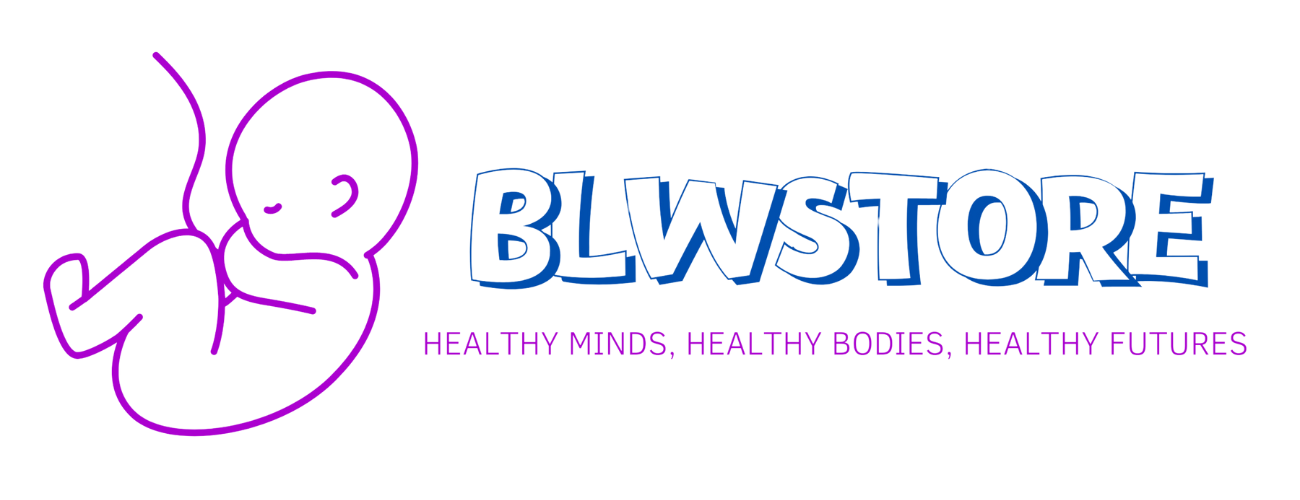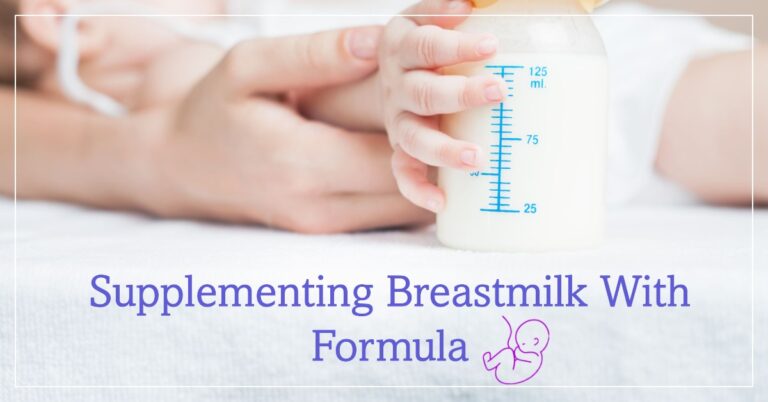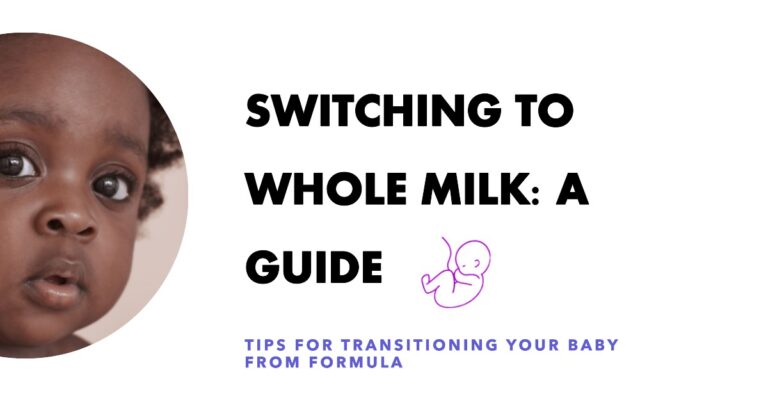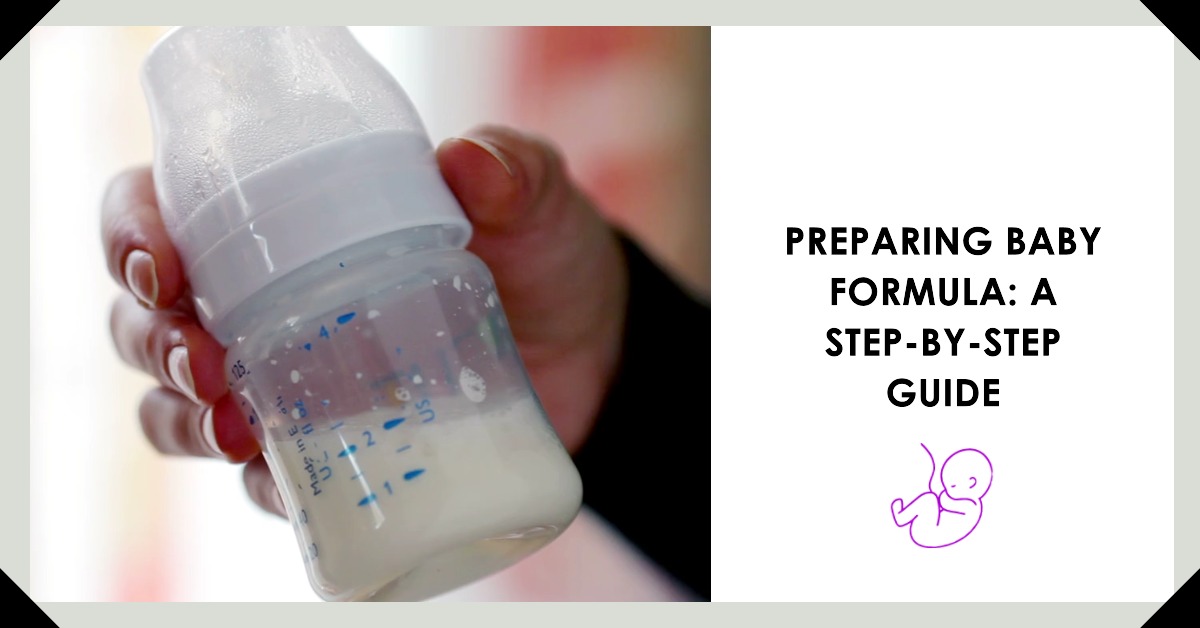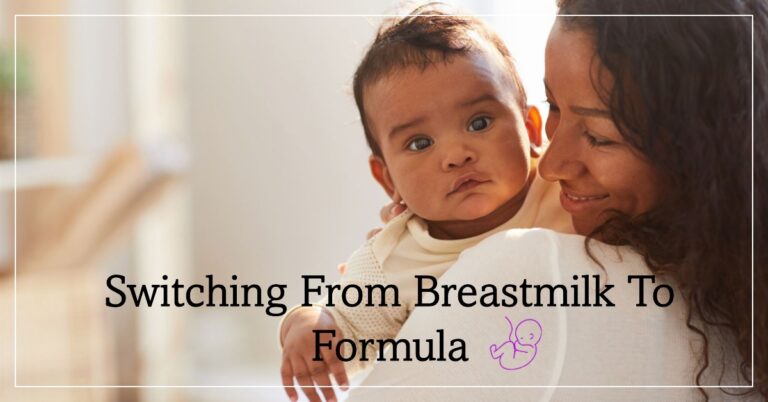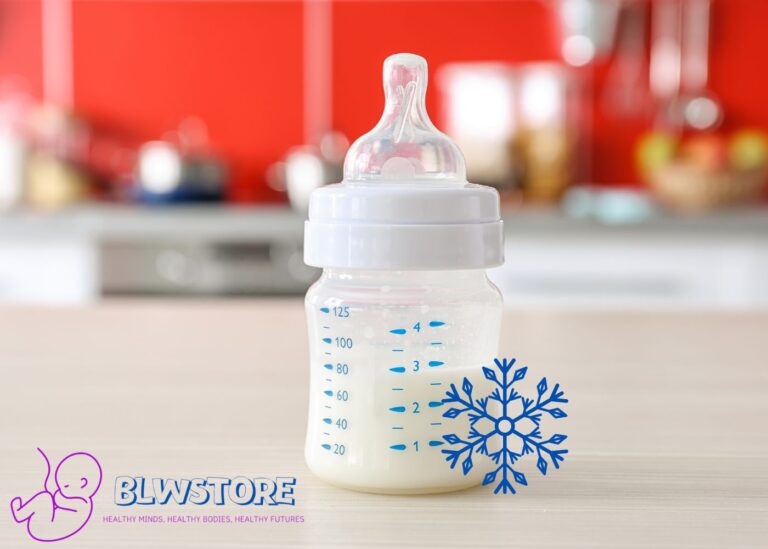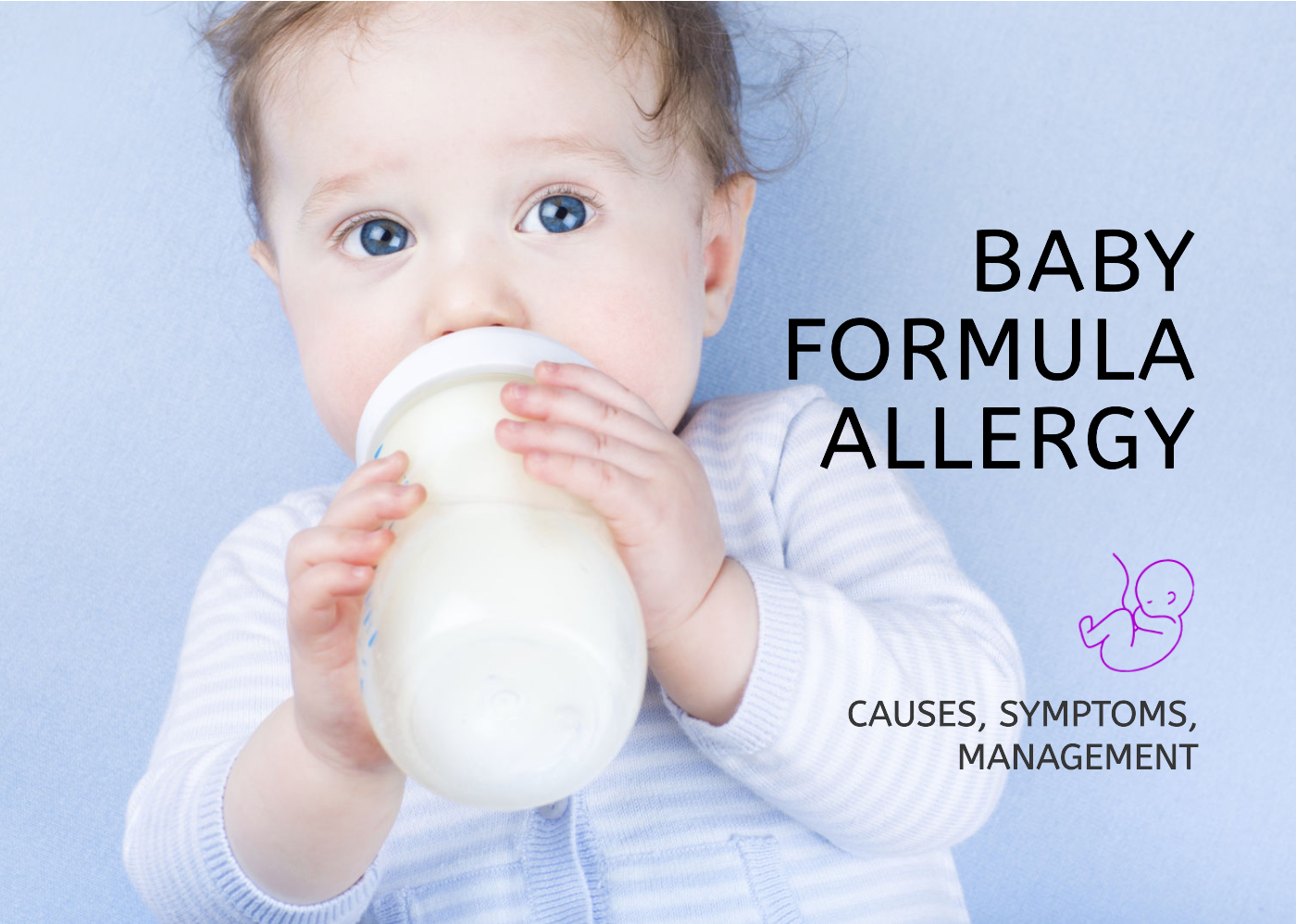
Key Takeaways
Baby formula allergies can lead to skin, respiratory, or digestive issues, or even changes in behavior.
Common food allergies in infants include Cow’s milk protein and Soy protein allergies, which can cause similar problems.
Lactose intolerance and sensitivities to other formula ingredients, like corn, are common.
If you suspect your baby has a formula allergy, seek immediate medical attention.
The primary treatment options include switching to hypoallergenic formulas or altering the breastfeeding mother’s diet.
Hypoallergenic formulas come in various types, partially or extensively hydrolyzed or amino acid-based. *Read: Best Hypoallergenic Formulas
It’s important to collaborate with a pediatrician for the correct diagnosis, treatment, and advice.
Remember, formula allergies can become more severe over time and symptoms may appear a few days after a new feeding regimen.
Always consult a healthcare provider if you suspect a formula allergy in your baby.
As a new parent, discovering your baby may have an allergy to formula can be extremely worrisome.
Understanding the causes, symptoms, and treatment options for this common issue that affects many infants is important.
In this blog post, we will delve into the world of baby formula allergies and intolerances, discuss how to identify signs of these issues in your little one and explore some effective strategies for managing them with the help of a healthcare professional.
What are the common causes of formula allergies in babies?
Babies can develop allergies to formula due to cow’s milk protein, soy protein, lactose intolerance, ingredient sensitivity, and digestive problems; symptoms include skin reactions, respiratory issues, behavioral changes, and more.
Cow’s milk protein allergy (CMPA) affects up to 3% of infants, causing skin reactions, digestive problems, and respiratory issues.
Soy protein allergy can also be severe.
Lactose intolerance and corn sensitivity are additional formula intolerances to consider.
What Is Cow’s Milk Protein Allergy?
Cow’s milk protein allergy (CMPA) is one of the most common food allergies in infants and young children, affecting up to 3% of those under three years old.
This type of allergy occurs when a baby’s immune system mistakenly identifies the proteins found in cow’s milk as harmful and reacts by producing immunoglobulin E antibodies.
In some cases, CMPA can cause skin reactions such as hives, redness, or eczema. Digestive problems are also commonly associated with this allergy; symptoms like vomiting and diarrhea can lead to poor weight gain for the infant.
In more severe instances, cow’s milk protein allergy may result in respiratory issues like chronic nasal stuffiness or even difficulty breathing due to swelling around the mouth or throat.
What Is Soy Protein Allergy?
Soy protein allergy is another type of formula allergy that some babies may experience.
In severe cases, a soy protein allergy can cause anaphylaxis, a severe and potentially life-threatening allergic reaction requiring immediate medical attention.
Soy-based formulas are often recommended for babies with cow’s milk protein allergies; however, since soy products can also be allergenic to some babies, it is essential to monitor their symptoms when switching formulas closely.
What Is Lactose Intolerance in Babies?
Lactose intolerance is another common cause of formula intolerance in babies. It occurs when a baby’s body cannot digest lactose, the sugar in milk and dairy products.
Symptoms of lactose intolerance include diarrhea, stomach cramps and bloating, gas, and general fussiness after feedings.
This condition can be diagnosed through a hydrogen breath test or by eliminating lactose from the baby’s diet to see if symptoms improve.
In some cases, switching to a lactose-free or low-lactose formula may help alleviate symptoms for babies with this condition.
Corn Or Other Ingredient Sensitivity
Babies can also develop sensitivities to other ingredients in formula, such as corn.
Corn sensitivity can cause a variety of symptoms, including digestive problems like diarrhea and stomach cramping.
It may also lead to respiratory issues such as coughing and difficulty breathing in severe cases.
What are the common symptoms of formula allergies in babies?
Formula allergies can cause digestive problems (cramps, bloating, diarrhea), skin reactions (redness, rash, eczema), respiratory issues (wheezing, coughing), and behavioral changes (irritability, fussiness).
Severe cases may lead to anaphylaxis.
Digestive Problems
Baby formula allergies can also lead to digestive problems for infants. Symptoms may include stomach cramps, bloating, gas, diarrhea, and vomiting.
These symptoms can cause discomfort for the baby and become a challenge for parents when trying to feed their child.
In some cases, babies with milk protein allergies may experience more severe digestive issues than those with a formula intolerance.
Skin Reactions
Skin reactions are a common symptom of formula allergies in babies. These reactions may include redness, itching, rash, and hives. Eczema is also a possible reaction that can occur when a baby is allergic to formula.
Eczema appears as dry patches on the skin or small raised bumps that can be itchy and uncomfortable for the baby.
It’s important to note that not all skin reactions are caused by formula allergies; some may be due to other factors like environmental allergens or diaper rash.
Respiratory Issues
Babies with formula allergies may experience respiratory issues such as wheezing, coughing, and shortness of breath. Cow’s milk protein allergy can cause more severe respiratory symptoms than formula intolerance.
Severe cow’s milk protein allergy can lead to anaphylaxis, a life-threatening allergic reaction requiring immediate medical attention.
It is worth noting that chronic nasal stuffiness, runny nose, or coughing could be early indicators of an actual allergic reaction in babies rather than just normal childhood colds or flu-like symptoms.
Behavioral Changes
Babies with formula allergies may experience behavioral changes such as irritability, fussiness, and difficulty sleeping. They may also show signs of hyperactivity or lethargy after feedings.
Some babies may become overly clingy and have trouble being put down, while others may be less interested in feeding altogether.
These behavioral changes can be distressing for parents trying to soothe their baby but unsure of the underlying cause.
How Do You treat formula allergies in babies?
You can treat formula allergies in babies by switching to a hypoallergenic formula, eliminating allergenic foods from the mother’s diet if she’s breastfeeding, and working with a pediatrician to manage symptoms.
Switch To Hypoallergenic Formula
Switching to a hypoallergenic or hydrolyzed formula may be recommended if your baby has a formula allergy or intolerance.
Hypoallergenic formulas are typically composed of proteins broken down into smaller fragments, making them easier for the baby to digest.
These are the types of hypoallergenic formulas:
Partially Hydrolyzed Formula: This formula contains partially broken-down proteins and can be helpful for babies with mild allergies or intolerances.
Extensively Hydrolyzed Formula: These formulas contain proteins that have been more extensively broken down and are often recommended for babies with moderate to severe allergies or intolerances.
Amino Acid-Based Formula: Amino acid-based formulas contain individual amino acids instead of whole proteins, which makes them the least likely to cause allergic reactions.
Eliminating Allergenic Foods From The Mother’s Diet (if she’s breastfeeding)
If a baby is suspected of having a formula allergy or intolerance, one option is for the mother to eliminate allergenic foods from her diet.
Some common allergenic foods affecting breastfed babies include cow’s milk, eggs, soy, wheat, peanuts, and tree nuts.
Here are some tips for eliminating allergenic foods from the mother’s diet:
Keep a food diary to track what you eat and any symptoms your baby experiences.
Avoid obvious sources of allergenic foods such as dairy products, eggs, and peanuts.
Check ingredient labels on packaged foods for hidden sources of allergens.
Consider consulting with a registered dietitian who specializes in food allergies to ensure that the mother is getting all necessary nutrients while avoiding allergenic foods.
Be patient as it may take several weeks to see an improvement in symptoms.
Working With A Pediatrician
If your baby is suspected of having a formula allergy or intolerance, it’s vital to seek medical attention from a reputable pediatrician.
An experienced physician can help diagnose the condition and rule out any other underlying health issues causing symptoms.
Working with a pediatrician can also help guide you on the best course of action when switching formula types.
Frequently Asked Questions
What Is The Difference Between Formula Allergy And Formula Intolerance?
Formula allergy occurs when a baby’s immune system reacts to one or more of the proteins in the formula, resulting in an allergic reaction.
While both conditions can cause similar symptoms, such as fussiness and stomach upset, allergies typically produce more severe symptoms than intolerances.
For example, an infant with a milk protein allergy may experience skin reactions like eczema or hives, while those with intolerances may only suffer from gas and bloating.
Can A Baby All Of A Sudden Become Allergic To Formula?
Yes, a baby can suddenly develop an allergy to formula. While some babies may show signs of formula intolerance or allergy from the first feeding, others can develop symptoms over time.
It’s important to be aware of any changes in your baby’s behavior or health after starting a new formula, even if they have previously been tolerating it well.
How Long Does It Take For A Formula Allergy To Appear?
Formula allergy symptoms can appear within minutes to a few hours after feeding the baby.
However, some sensitivity or intolerance symptoms may not show up until a few days after switching to a new formula.
What Should I Do If My Baby Is Allergic To Formula?
If you suspect that your baby is allergic to formula, it is important to consult with a healthcare provider for proper diagnosis and treatment.
The first step may be to switch to a hypoallergenic formula or eliminate allergenic foods from the mother’s diet if breastfeeding.
Your pediatrician may also recommend medication to manage symptoms or refer you to specialists such as an allergist or gastroenterologist, depending on the severity of the allergy.
We’re Maria and Alberto, a married couple and educators who are nutrition enthusiasts. Even before we had kids, we were already crazy about nutrition.
We’d read scientific articles, watch videos from nutritionists, and spend hours listening to nutrition podcasts.
Today, we continue doing this, but in a different way, as we’ve learned to sift through the noise and trends. Nutrition, like any other field of knowledge, the more you read and learn, the more you develop a comprehensive understanding of reality, and that’s what has happened to us.
Before having our first child, we focused on learning everything we could about child nutrition, using the same techniques we had already employed, backed by our extensive knowledge in nutrition.
Our mission is to help other parents with their children’s nutrition, to help them become the best versions of themselves.
If we are what we eat and drink, which is absolutely true, let’s do it right!
